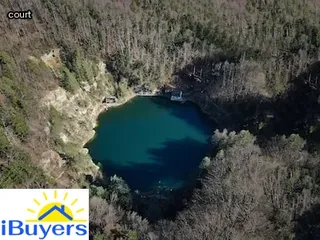Navigating the complexities of probate real estate in Florida can be overwhelming. It is important to understand the different laws and regulations that are unique to this state, as well as the process for transferring ownership of a decedent’s property.
As with any legal situation, it is best to consult a professional familiar with probate and real estate in Florida before taking any action or making any decisions. In this comprehensive guide, we will discuss the basics of probate real estate in Florida, explain the steps involved in transferring title of a deceased person’s property, outline what must be included in an inventory of assets, review the differences between testate and intestate estates, and provide key information about filing taxes on inherited property.
With this knowledge, you will have a much better understanding of how to navigate probate and real estate in Florida.

Navigating probate and real estate in Florida can be a complex process for those who are unfamiliar with the law. Probate is the legal process of distributing a deceased person's assets according to their will or state law.
The probate process begins when an individual dies and will involve identifying, valuing, and distributing the deceased's assets. This involves court hearings and documents that need to be filed before the assets can be disbursed.
In some cases, family members may also be involved in challenging the will or objecting to certain decisions made by the executor of the estate. The length of time it takes to complete the probate process can vary depending on how complicated the estate is and whether any disputes arise during this time.
It is important to understand all aspects of probate before embarking on such a journey so that you know what to expect and can make informed decisions throughout this process.
Navigating probate and real estate in Florida can be complicated, especially if you don't know who is responsible for what. It's important to understand the roles and responsibilities of each party involved in order to ensure that the process runs smoothly.
Generally speaking, when it comes to probate and real estate, a few parties will be involved: an executor or personal representative, an attorney, and any heirs or beneficiaries of the estate. The executor is responsible for managing all financial matters related to the deceased's estate; this includes paying debts, filing tax returns, distributing assets according to instructions in the will or by law, and more.
An attorney should handle any legal issues that arise during the probate process, such as disputes between parties or tax-related issues. Lastly, any heirs or beneficiaries are usually responsible for providing proof of their identity and relationship to the person who passed away in order to receive their inheritance.
Following these guidelines can help make navigating probate and real estate in Florida much more straightforward.

When dealing with probate and real estate in Florida, it is important to understand the process of appointing an executor or administrator. The court appoints an individual to oversee the administration of a deceased person's estate and they are responsible for collecting assets, paying off debts and distributing assets to beneficiaries.
An executor is typically a family member or close friend of the decedent who has been named in their will, while an administrator can be appointed by the court if there is no will. Executors have more control over the estate than administrators but both have many responsibilities including obtaining a tax identification number, filing tax returns and other legal documents, notifying creditors, appraising property and distributing funds according to state law.
It is crucial that those navigating probate and real estate in Florida make sure they understand the appointment process of an executor or administrator as it can be a complex process that requires knowledge of state law.
Navigating probate and real estate in Florida can be a complex process. It is essential to understand the decedent's will and revocable trust in order to ensure that the process runs smoothly.
A will is used by an individual to document how they wish their property, finances and other assets to be handled after they pass away. A revocable trust is created during a person's lifetime to manage assets and provide instructions for how they should be distributed upon their death.
When a person dies, the will or trust becomes irrevocable and its instructions must be followed in order for the decedent's wishes to be carried out. The probate process involves distributing assets according to the instructions outlined in these documents, as well as gathering any outstanding debts owed by the deceased individual.
This comprehensive guide outlines the steps needed for navigating probate and real estate in Florida, including understanding the decedent's will and revocable trust. It provides important information about how these documents are used, what needs to be done after someone passes away and how best to handle any disputes or disagreements which may arise during this time.
By having an understanding of wills, trusts and the probate process, it is possible for individuals to ensure that their wishes are carried out correctly when they are no longer alive.

When navigating probate and real estate in Florida, it is important to understand the obligations to estate creditors. Estate creditors must be paid before beneficiaries receive any inheritance.
The executor has the responsibility to determine if there are any valid claims against the estate, and if so, must pay those creditors within a reasonable amount of time. The executor must also notify all known or reasonably ascertainable creditors of their rights to make a claim against the estate.
If a creditor fails to make a claim within the time frame set by law, they are barred from making one later. It is essential that all debts and obligations of the decedent be satisfied before assets can pass on to beneficiaries.
In addition, taxes due on behalf of the decedent must also be paid in full prior to distributing assets from an estate. As the executor of an estate in Florida, it is critical for you to have an understanding of these obligations so that you can ensure all due payments are made and fulfilled before proceeding with distributions from an estate.
When it comes to navigating Probate and Real Estate in Florida, it is important for the surviving family of a decedent to understand their rights. In Florida, probate is required for any estate that contains $75,000 or more in real property or personal property.
This means that the surviving family must complete the probate process in order to receive their inheritance. During this process, the surviving family is legally entitled to certain rights, including being informed about all aspects of the case and having access to any relevant documents and records related to the estate.
Additionally, they are allowed to participate in court proceedings and can be appointed as an executor or guardian if necessary. The surviving family also has the right to dispute any decisions made by a court-appointed representative or trustee regarding how the estate should be distributed.
As such, it is important for them to ensure that their interests are fully represented during this process.

Navigating the probate process in Florida can be a complex and time-consuming endeavor. Estimating the timeframe of the probate process is critical for those looking to handle estate matters efficiently.
Generally, a comprehensive probate process for real estate in Florida can take anywhere from 9 months to up to 2 years. Factors such as the size of the estate and any potential disputes can influence the timeline significantly.
These considerations can often make it difficult to estimate how long probate will take, but understanding what is involved in the process and being aware of potential delays can help ensure that your case progresses in a timely manner. It's important to work with an experienced attorney who can guide you through each step of navigating probate and real estate in Florida, helping you meet deadlines and properly manage your affairs so that you can move forward with confidence.
The probate process can be a long and arduous journey in Florida, and many times unexpected delays can make the process take even longer. To avoid these potential roadblocks and ensure a successful outcome, it is important to understand how to navigate probate and real estate in Florida.
This comprehensive guide will provide you with the information you need to stay ahead of the game and prevent any unnecessary delays during the probate process. Every situation is unique, so it’s important to know exactly what to do when it comes to filing documents, forming an estate plan, paying taxes and other associated fees, as well as dealing with creditors.
Having a clear understanding of the entire process can help you avoid costly mistakes that could result in long-term delays or other unexpected problems. Additionally, seeking legal advice from a qualified attorney familiar with local laws can help ensure that all relevant documentation is filed correctly and on time.
By taking these steps, you can navigate probate and real estate in Florida quickly and efficiently without any unnecessary delays.

When navigating probate and real estate in Florida, the right real estate professional is essential to making informed decisions. When selecting a real estate professional for probate issues, it is important to look for someone with expertise and experience in both probate law and real estate.
They should have a thorough understanding of the process and paperwork that is necessary to complete a successful real estate transaction when probate is involved. Additionally, they should be knowledgeable about local laws and regulations concerning probate transactions.
It may also be helpful to find someone who is familiar with the local court system in order to ensure that all documents are properly filed. Lastly, look for a professional who will provide reliable communication throughout the process so you can remain informed every step of the way.
Navigating probate and real estate in Florida can be a complex process, requiring careful attention to detail and preparation. It is essential to ensure that any paperwork or documents filed are completed properly and in accordance with the relevant laws of the state.
Knowing what paperwork is necessary and understanding the filing procedures will help to make the process smoother. The first step is to obtain all of the required documents, such as death certificates, wills, trust documents, power of attorney forms, and affidavits.
Once you have all of these documents ready, they must be filed with the appropriate court. Depending on the type of probate proceeding you are engaging in, there may be additional forms or filings involved.
It is important to understand which forms need to be filled out correctly as mistakes can lead to delays or even denials. Additionally, if you are dealing with real estate transactions it is also important to familiarize yourself with any applicable local laws or regulations that could affect how you proceed.
Careful research and planning can help ensure that all paperwork and documents are submitted correctly and on time throughout probate proceedings or real estate transactions in Florida.

When dealing with debts and liabilities after the death of a loved one in Florida, it is important to understand the process of probate. Probate is a legal process that involves the transfer of assets from a deceased person to their rightful heirs or beneficiaries.
In order to do this, creditors must be paid off first, and any remaining assets are then divided among those named in the will or trust. Depending on the size of the estate and its complexity, probate may take months or even years to complete.
After probate is finished, real estate must be dealt with separately. This includes determining who will receive title to any real property owned by the deceased.
In some cases, real estate may be sold in order to pay off outstanding debts or other liabilities. If there are multiple heirs involved, it is important for them to agree on how the real estate should be handled and who should receive title.
Ultimately, navigating probate and real estate when dealing with debts and liabilities after death can be a complicated process but understanding the steps involved can help ensure that everything goes smoothly for all parties involved.
Navigating probate and real estate in Florida can be a complicated process, especially when it comes to understanding the tax implications after death. Depending on the size of the estate and who is inheriting it, there may be state and federal taxes due.
For example, if someone dies with a large estate, their heirs may owe inheritance taxes to both the state and federal government. Additionally, Florida has an intangible personal property tax that applies to stocks or bonds left behind by the deceased.
When selling real estate in Florida, capital gains taxes are applicable for any profit made from the sale. It's important to consult with an experienced financial advisor to ensure all applicable taxes are paid properly and on time.

Navigating probate and real estate in Florida can be a complex process, especially when managing property and assets during the probate process. It is important to understand the laws unique to Florida that govern the oversight of wills, trusts and other assets associated with probate proceedings.
The courts must approve all activities related to the distribution of property after death, so it is critical to ensure that all procedures are followed correctly. In addition, there may be tax implications associated with certain assets or properties that could impact how they are handled during probate.
Finally, understanding how personal property and real estate will be affected by any debts or liens on them can help you make informed decisions about how to best manage such items during probate.
Navigating probate and real estate in Florida can be a complicated process, especially when it comes to distributing assets according to the decedent's will. It is important to understand that the probate court has jurisdiction over the estate of a decedent in the state of Florida and will ultimately be responsible for determining how the assets should be distributed.
The court's primary purpose is to ensure that the decedent's wishes are followed as closely as possible while also verifying all relevant documents and providing legal oversight. In order to do this, they must review any last will and testament left by the decedent, examine all assets owned by or held in trust for them, and determine whether any creditors have claims against those assets.
Once these steps have been completed, their decision regarding how assets should be distributed may be final unless otherwise challenged in court. Additionally, if real estate is involved, there may be certain regulations related to transferring ownership that must also be taken into consideration before distribution can take place.
Understanding each step of this process is key for ensuring that all parties involved are treated fairly and that the decedent's wishes are carried out accordingly.

When someone passes away without having written a will, their estate is subject to a process called intestate succession, which means that Florida’s laws of inheritance determine who the beneficiaries and heirs to the property are. This often requires extensive research and legal paperwork in order to transfer ownership of the deceased’s assets, such as real estate.
The probate court has jurisdiction over these matters and if there are disputes or disagreements between family members about how to proceed, then it must be resolved through the court. It is important to be aware of possible legal complications when dealing with a decedent’s property without a will, and it can be beneficial to consult with an attorney who specializes in probate law in order to understand all available options and ensure that everything is done properly.
Additionally, individuals may need to obtain letters of administration from the court before they can take possession of any real estate owned by the deceased person. Knowing what steps need to be taken when there is no will can help make navigating probate and real estate issues in Florida less complicated.
Navigating probate and real estate in Florida is not always easy, and mistakes can be costly. During the settlement of an estate, it is important to remember that the decedent's wishes must be followed exactly, even if they are not what the family desires; failure to do so will result in serious repercussions.
Additionally, it is important that all assets are accounted for and all taxes paid; this includes filing a final income tax return on behalf of the deceased. If certain assets are excluded from being taxed or claimed by creditors, proper documentation must be filed with the court in order to protect them.
Finally, when selling property or transferring title during probate proceedings, it is essential to use a qualified attorney or title agent who knows how to properly handle such transactions without violating any laws or regulations. Understanding these common mistakes ahead of time can help ensure a smoother process and better outcome for all involved.

When navigating the complex laws and regulations of probate and real estate in Florida, it is highly beneficial to have legal counsel. During probate proceedings, a lawyer will be able to provide guidance on the court options available when disputes arise.
They can also assist in understanding the intricacies of Florida law and making sure that all requirements are adequately met. With their expertise, they can ensure that all deadlines are met, all paperwork is filed correctly, and any necessary taxes are paid in full.
Furthermore, they can help to ensure that your legal rights are protected throughout the process. Having an experienced attorney by your side can greatly ease the stress of navigating probate proceedings and real estate transactions in Florida.
Yes, real estate does go through probate in Florida. The process of navigating probate and real estate in the state can be complex and time-consuming, as it involves a number of steps and legal considerations.
To ensure that your rights and interests are protected during probate proceedings, it is important to understand the laws governing these matters. This comprehensive guide will provide you with an overview of the probate process for real estate in Florida, including filing requirements, distribution of assets, tax implications, and more.
With this information at hand, you can rest assured that your real estate transaction will move forward smoothly and efficiently.

When a person passes away, the process of probate must be completed before their estate can be distributed and their assets passed on to heirs. In Florida, if real estate is part of an estate, it is subject to the laws governing probate in the state.
Probate is a legal process that involves validating a will, appointing an executor to manage the estate, notifying creditors and settling any outstanding debts, and ultimately distributing assets to beneficiaries according to the terms of the decedent's will. When it comes to real estate in probate in Florida specifically, there are several different possible outcomes depending on how the property was owned and what type of will was used.
If the deceased held title to their property jointly with right of survivorship—which means they owned it with another person who has a right to inherit upon their death—the surviving owner automatically becomes sole owner of the property without probate court involvement. If no other owners exist or if they do not have rights of survivorship listed on their deed, then real estate must go through probate court in order for ownership to be transferred.
Probate court may also be required if there is no valid will or if there are disputes over who should inherit the property. Once any issues are resolved and all liabilities have been settled, ownership can then be transferred according to the terms of the will or intestacy laws in Florida.
In Florida, the length of time that property stays in probate depends on a few factors. Generally, the process takes between six months and two years.
However, it can take longer if there are complex issues or if there is a dispute over the estate. In addition to the amount of time it takes to probate an estate, certain documents must be filed in order to initiate the probate process.
These documents include petitions for administration of the estate, inventories and appraisals of assets, notices to creditors and other interested parties, as well as filing final tax returns. Once all these steps have been taken, a personal representative will be appointed by the court who will oversee distribution of assets and liabilities according to law.
The amount of time required can vary significantly depending on how quickly assets can be identified and distributed. As such, understanding when real estate is transferred from an estate is essential for navigating probate in Florida and ensuring that all legal requirements are met.
When it comes to navigating probate and real estate in Florida, there are several ways to avoid probate. A key factor in avoiding probate is understanding the different types of property that may or may not be subject to it.
Real estate held in joint tenancy with right of survivorship, for example, will pass directly to the surviving tenant without need for probate. Similarly, certain life insurance policies and retirement accounts can be designated as payable upon death without passing through probate court.
Additionally, a revocable living trust can be created as an alternative to a last will and testament as a way of ensuring that assets are passed on without having to go through the probate process. Finally, if you own real estate in Florida it is important to update your deed after any change in ownership so that it is properly recorded with the county clerk's office.
By taking these steps you can help ensure that your real estate passes on without having to go through probate court.
A: In Florida, attorneys are typically necessary for probate administration. They can help ensure that all legal requirements are met and that the deceased's assets are distributed according to their wishes.
A: According to Florida Statute § 733.608, Realtors are allowed to market real estate listed for probate sale after they have obtained permission from the court and all parties involved in the probate proceedings.

A: Yes, you can pursue litigation for a real estate matter related to probate in Florida. This typically involves filing a lawsuit or otherwise initiating legal action with the help of an attorney.
A: A guide to probate and real estate in Florida can provide helpful information about the state's laws, procedures, and best practices for navigating the probate process, as well as offer insight into real estate transactions in the Sunshine State.
A: The Florida Bar offers a comprehensive guide to probate and real estate law in the state of Florida, which is available on their website.

A: In Florida, the probate judge must approve all homestead deed transfers before they can be finalized. Attorneys are usually involved to ensure that all legal requirements are met and that the transfer is valid.
A: During probate, attorneys will assess all money, contracts, tenancy by the entirety, and ownership interests to ensure that they are properly distributed according to Florida law. The court must approve any changes to the estate before it can be finalized.
A: It is important to note that all assets located in Florida, including real estate, must go through the probate process before they can be distributed to the decedent's heirs. As part of this process, any taxes owed on the assets must be paid prior to distribution. This includes estate taxes as well as other associated taxes and fees.

A: Probate administration of real estate in Florida may involve the payment of Federal Estate Taxes, depending on the value of the estate and other factors. Attorneys may be involved in advising on appropriate measures to minimize or delay taxes due upon disposition of the property.
A: A comprehensive guide to probate and real estate laws in Florida can be found on the Florida Bar website.
A: Depending on the circumstances, probate administration in Florida real estate may involve U.S. income tax liability, including individual income taxes and other taxes such as estate taxes. An attorney can help to assess the particular case and determine any applicable taxes that must be paid.

A: When handling the probate administration of real estate in Florida, attorneys should be aware of the potential title insurance implications. Title insurance companies may require additional paperwork or documentation to prove that a deceased individual’s estate is properly settled before issuing a policy on the subject property.
A: A comprehensive guide to navigating probate and real estate in Florida is available which provides an understanding of the process, including information on attorneys, estate taxes, and federal income taxes.
A: A comprehensive guide to navigating probate administration in Florida real estate can help you understand the steps and processes involved. It will also provide information about the various laws and regulations related to probate administration in Florida, including estate tax and federal income tax implications.
A: When dealing with probate and real estate in Florida, it is important to seek legal advice from an experienced lawyer who is knowledgeable about the probate laws of the Sunshine State. A lawyer can help guide you through the process of administering a deceased person's estate, as well as advise on any potential tax implications or other legal considerations.
A: A Will or Trust can be used as a tool to facilitate the probate process in Florida by providing clear instructions on how to distribute the deceased person's assets and possessions. In addition, they can help to minimize estate taxes and federal income taxes associated with probate administration. Furthermore, they provide legal guidance and clarity on the terms of property ownership and any other legal considerations that may need to be addressed when dealing with probate and real estate in Florida.
A: In Florida, probate and real estate law involve several steps that require the assistance of a lawyer. These include filing petitions, opening estates, and preparing court documents. Additionally, a lawyer can help with any disputes over title to real estate assets and advise on the best course of action for transferring assets from the deceased's estate.
A: A Will or Trust can be used to help streamline the probate process, as well as provide clarity regarding the division of the property. Such documents can also be used to designate beneficiaries of the estate and clarify any potential tax implications related to the real estate.
A: Several legal resources provide comprehensive guides to navigating probate and real estate law in Florida, including the State Bar of Florida's website which contains information on topics such as wills, trusts, guardianships, taxes, and more. Additionally, many local bar associations offer free materials or seminars about probate and real estate law in Florida.
A: Wills are a key component of the probate process in Florida, as they provide instructions for the distribution of real estate assets to beneficiaries. The probate court will review the validity of the will and then distribute real estate assets according to its terms. To ensure that all legal considerations are taken into account and that the will is properly executed, it is important to work with an attorney who has expertise in probate and real estate law in Florida.
A: Estate planning for real estate in Florida can involve a variety of taxes, such as federal and state income taxes, capital gains taxes, gift taxes, and estate taxes. When a decedent passes away, their estate is subject to these various tax regulations. It's important to consult with an experienced attorney familiar with probate and real estate law in Florida to ensure compliance with applicable tax laws.
A: Wills are important documents that dictate a person's wishes for their assets, including real estate, after they pass away. In order for a will to be legally binding in Florida, it must meet the requirements of the state's probate laws. Probate is the process of validating and executing a will, which includes proving its authenticity and distributing assets according to its instructions. Because of this process, wills have an integral role in probate and real estate law in Florida.
A: A Trustee is responsible for managing assets held in a trust, which can include real estate. The Trustee must ensure that the terms of the trust are followed, that the beneficiaries receive their designated assets, and that all laws regarding probate and real estate are followed.
A: When transferring real estate through probate in Florida, the process typically requires a lawyer to prepare the necessary documents and ensure compliance with state laws. The attorney often helps the executor of an estate to identify, inventory, and value assets; pay creditors and taxes; and distribute assets according to the terms of a will or other applicable law. In some cases, court hearings may be required as part of the probate process.
A: Trusts can be used to transfer ownership of real estate in Florida by avoiding the probate process. This is because trust assets are not subject to probate, so the property can be managed and transferred without going through a court proceeding. The terms and conditions of the trust must be followed in order for the transfer of ownership to be valid under Florida law.